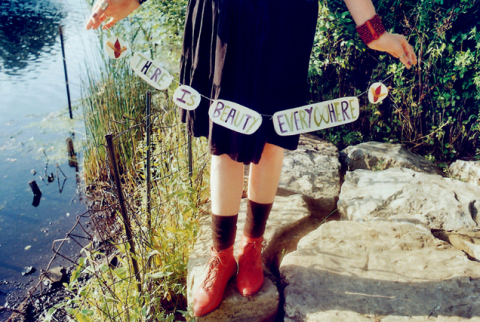
Beautiful Language Barriers - A Ghazal by Laina Briedis
The Japanese gaze absently into space on their own--
and they do it so often, they have a word-- “boketto”-- all their own.
When visiting an Inuit, if arriving past time due,
they may experience “iktsuarpok”-- waiting in snow on their own.
The Indonesians will make you smile with their “mencolek”--
tapping your opposite shoulder to give you a trick-show, all your own.
When in Brazil, take a lover, and run fingers through their hair--
he or she will praise your “cafune,” and be a beau all your own.
The Bantu people are dreamers-- and “bilita mpash” are the best,
the opposite of night terrors, a fantasy known-- all your own.
In Denmark, a “kaelling” is an angry mother, cussing at her babes--
this plague is ridiculed: mothers in hateful woe on their own.
The Czech are an emotional people, often surprised by their misery--
they call this “litost,” and it’s gone through on one’s own.
When sad, visit Germany and stuff yourself to, “kummerspeck”--
weight gained from eating one’s feelings-- being a shnitzel plow on your own.
The Lithuanians are forest-dwellers, and they will tell you so--
Their forest deer, or “briedis,” will lead where wild things grow (on their own).
REFERENCE (gathered from various online sources):
Boketto- Japanese for gazing vacantly into the distance
Iktsuarpok- Inuit for the feeling of anticipation waiting for someone to arrive
Mencolek - Indonesian for tapping someone on the opposite shoulder to fool them
Cafune - Portuguese for running fingers through a lover’s hair
Bilita Mpash- Bantu for an incredible, amazing dream-- the exact opposite of a night terror
Kaelling- Danish for a mother who curses and shouts at her children in public
Litost- Czech emotion for the torment experienced at the abrupt realization of one’s own misery
Kummerspeck- German for excess weight put on as a result from emotional overeating
Briedis - Lithuanian for forest elk or deer
